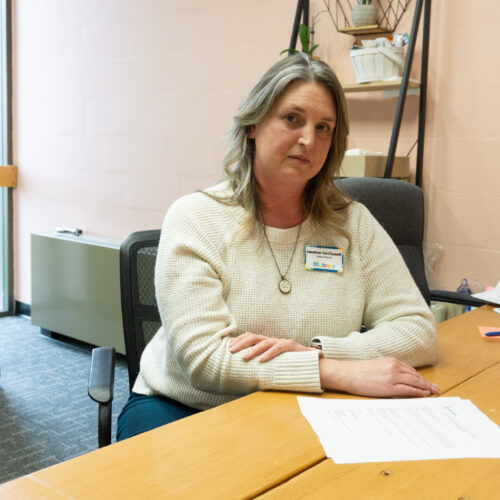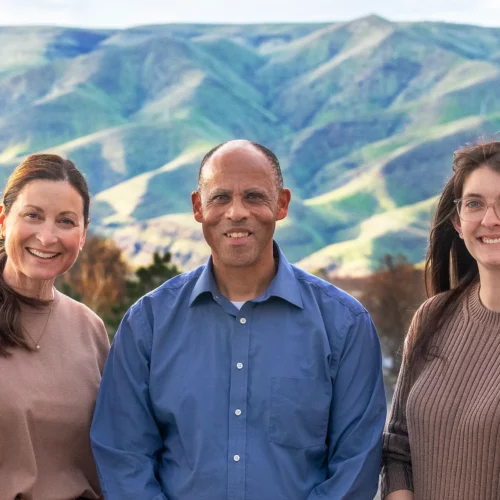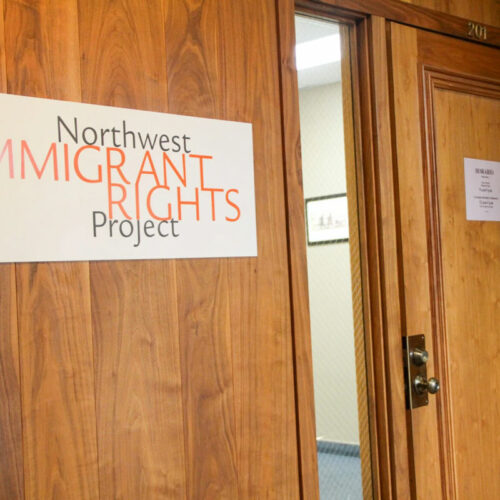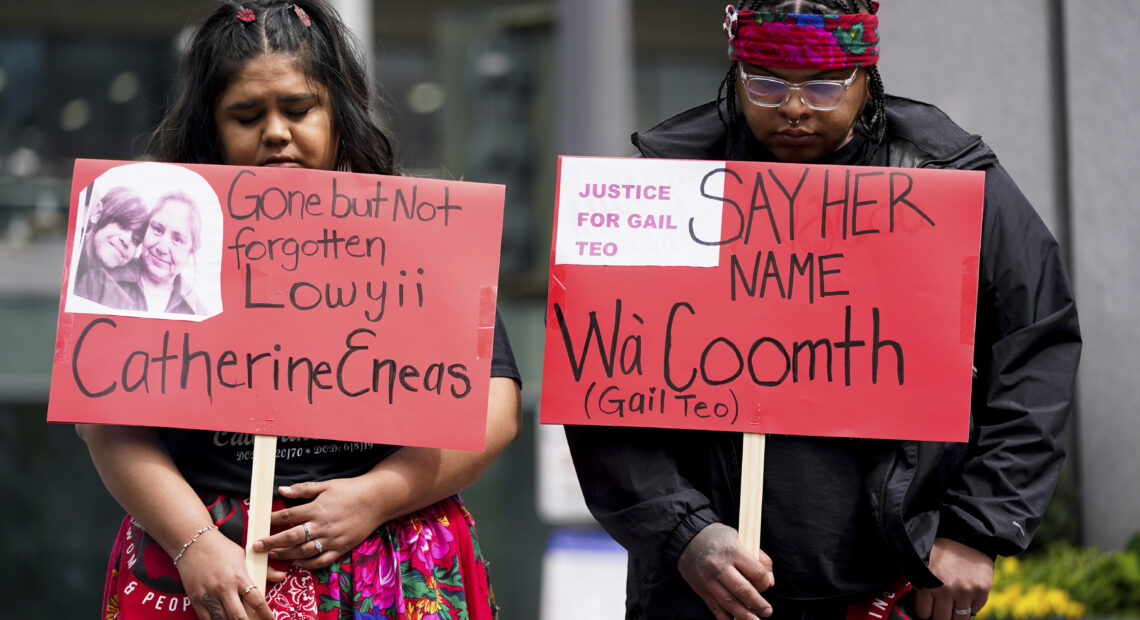
More federal support on the way for solving Eastern Washington MMIP cases
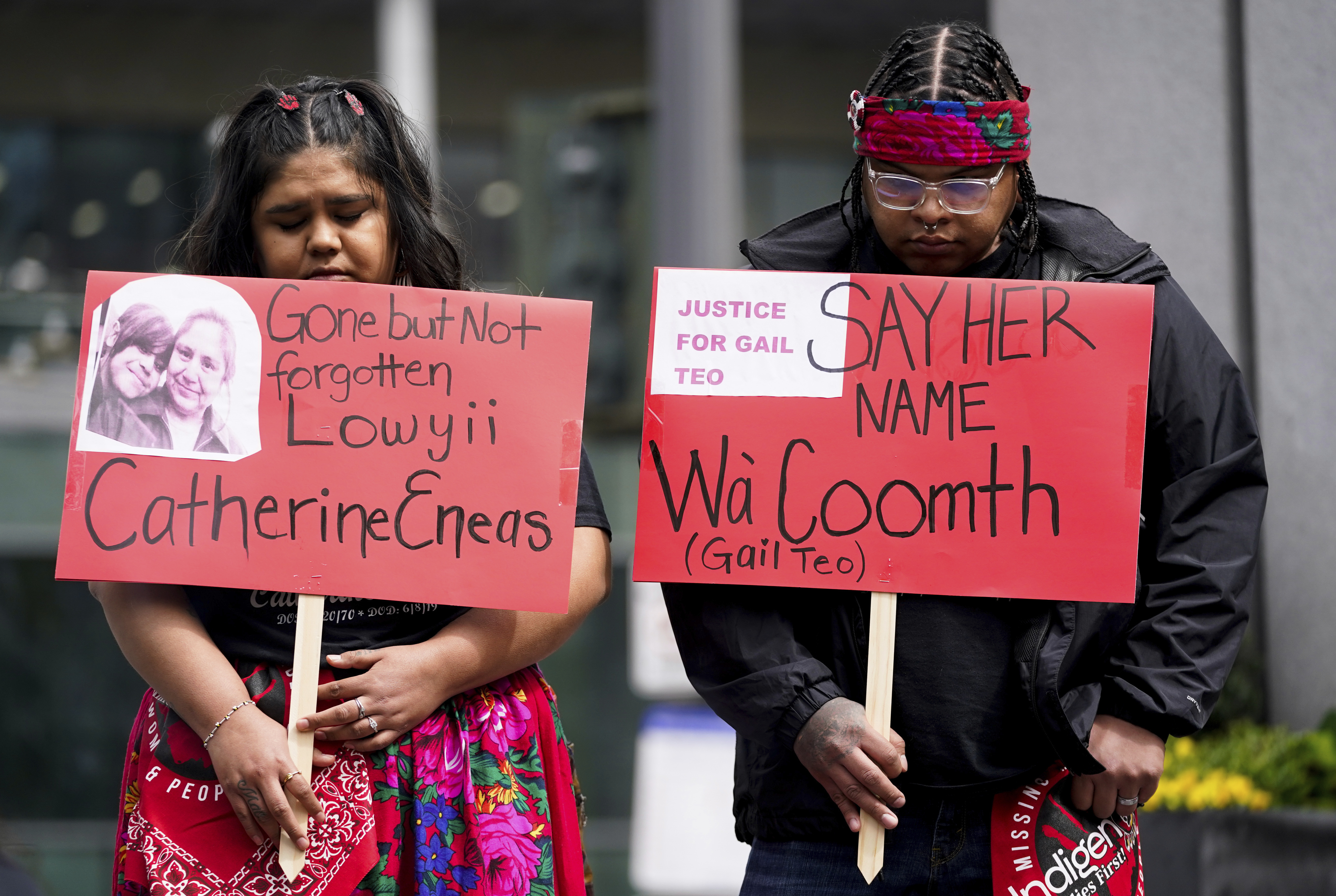
Listen
(Runtime :57)
Read
Eastern Washington will soon get more help in solving Missing or Murdered Indigenous Persons cases.
A new federal MMIP Regional Outreach Program from the Department of Justice (DOJ) will place 10 attorneys and coordinators in five regions across the U.S. One of those is Eastern Washington.
“The goal is greater collaboration between the United States Attorney’s office and several districts: Eastern Washington, Washington, Oregon, Idaho and Montana,” said Vanessa Waldref, United State Attorney for the Eastern District of Washington. “All of us need to work together because crime doesn’t only exist within one isolated district.”
Passed in 2020, The Major Crimes Act gives U.S. attorneys the power to prosecute Native Americans who commit crimes on reservations, whether or not the victim is Indigenous.
Eastern Washington is one of the regions that will also be getting a dedicated federal attorney.
The new MMIP program draws from the expertise of state attorneys in prosecuting violent crimes like homicides, sexual assaults and human trafficking cases, said Waldref.
For the most difficult cases, tribal police often work with the Federal Bureau of Investigation, said Detective Todd Beebe, who works for Yakama Tribal Police.
“There are a lot of different aspects as far as culture, way of thinking. All of these things come into play in each of these cases,” said Beebe.
Teaching federal law enforcement how to navigate the cultures and customs of Indian Country can help agents find answers, said Beebe.
“We try to open those doors and make people feel more comfortable and understand that we’re all on the same side,” said Beebe, who pointed out that having an FBI agent show up to your house can be intimidating for anyone.
While working a complex case on the Yakama Indian Reservation, Beebe said he noticed an FBI agent had some tobacco and encouraged him to bring it to the elder they were trying to interview.
“It opened up all the doors. We were able to get a lot of information because he was a witness to a shooting,” said Beebe, who said the elder was impressed by the gesture, giving gifts in return for the tobacco, and even introducing the agents to his family.
“The agent was really impressed,” said Beebe.
Although the number of murders has been going down nationwide according to the FBI, violent crime on the Yakama Indian Reservation is going up, said Beebe.
“Compared to when I very first started 20 years ago, you didn’t have as many instances with guns,” said Beebe. “You have a lot of fights, some stabbings with blunt force weapons, stuff like that, but not so much shootings. [Crimes] go more towards firearms now.”
Despite new forensic tools in DNA and blood analysis, relationships with the community are most often what helps solve a case, said Waldref.
“The more relationships that we build with the community, the stronger our referrals are from the tribal police department and from our partners to effectively bring these cases,” said Waldref.
Indian Country has a long and sordid history with the federal government, said Afton Servas, a Public Relations Coordinator for the Kalispel Tribe of Indians.
“This program is encouraging, that the DOJ, especially in the last 24 months, has really made an effort to reach out to Indian Country,” said Servas, who is an enrolled member of the Kalispel Tribe of Indians.
The Kalispel Indian Reservation is small. It’s around 10 miles long by two miles wide, with just under 500 enrolled tribal members, said Servas.
It’s harder for larger tribes like the Yakama Nation to respond to crimes on a reservation spanning 1.3 million acres with a small tribal police force, said Servas.
“To have this program and a federal attorney who sees that there is a problem and an increase in these crimes, I think just it really speaks to their willingness to want to solve this crisis,” said Servas.
A 2016 study by the National Institute of Justice found that more than four in five American Indian and Alaska Native women experienced violence in their life. Nearly 60% experienced sexual violence, according to the Bureau of Indian Affairs.
The federal program is still in the building stages. Several homicide investigations are underway and more are already in court, said Waldref.
“I’m meeting with our FBI partners, talking about these court cases, really trying to understand, what does it take for us to get over the finish line if there is a potential viable federal case that we could bring,” said Waldref.
The federal government can – and should be – doing more, said Waldref. “This is the first step,” she said.
Her office is collaborating closely with other partners outside the federal government such as the Washington State Patrol and the Bureau of Indian Affairs, said Waldref.
Once confirmed by the DOJ, there will also be a regional MMIP coordinator who will oversee work in Oregon, California, Washington, Idaho and Montana.


